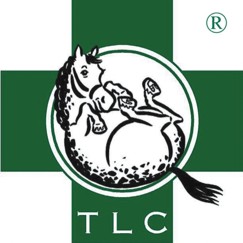 |
The Laminitis
Clinic
|
|
Every horse or pony which is admitted to the Laminitis Clinic has urine and blood samples collected and submitted to the following analyses in order to try and identify any signs of systemic disease; From one venepuncture samples are collected into plain, heparin, oxalate/fluoride and EDTA transport tubes and a urine sample is collected into a plain bottle. From these samples we perform the following analyses; Haematology; full analysis including platelet count and differential WBC count Serum biochemistry for; Alkaline phosphatase, intestinal alkaline phosphatase, AST, Gamma GT, Bile acids, GLDH, LDH, Bilirubin, Total protein, Globulin, Albumin, Protein electrophoresis, Urea, Creatinine, Glucose, Non esterified fatty acids, CPK, Sodium, Potassium, Calcium, Magnesium, Chloride, Phosphate. Urine; Creatinine, Sodium, Potassium, Calcium, Magnesium, Chloride, Phosphate, pH, SG, blood, glucose, protein, ketone, bilirubin, colour, sediment. In addition should there be any clinical signs indicating endocrine abnormalities, such as INSULIN RESISTANCE OR CUSHING'S DISEASE we also collect samples to measure glucose, insulin and ACTH. ALL THESE SAMPLES SHOULD BE TAKEN FIRST THING IN THE MORNING, BEFORE FEEDING, AND THE ANIMAL SHOULD IDEALLY NOT BE RECEIVING ANY DRUGS. Your veterinary surgeon will arrange suitable transport kits from a reputable laboratory and ensure samples arrive in good condition. These are screening tests, further testing may be necessary. For example an intravenous glucose tolerance test is the gold standard for the identification of insulin resistance (metabolic syndrome). If endogenous ACTH is also
elevated, particularly in more than one sample and in combination with clinical
signs of Cushing's Disease then our chosen protocol is a combination of two herbal
products available from Equi Life Ltd. |